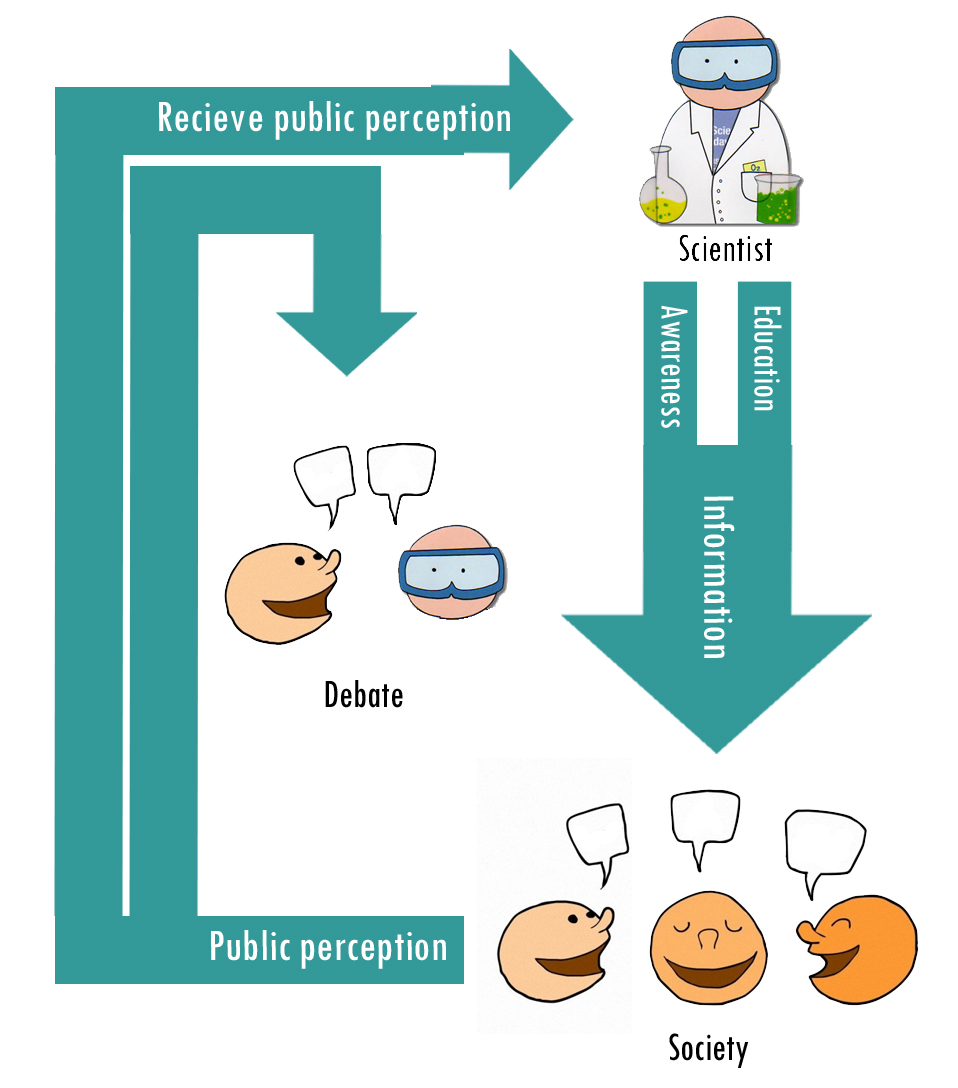Team:TU Delft/Human-practice/EPAC
From 2010.igem.org
A new approach to Human Practice - The EPAC Pyramid
When new technologies are presented to society, the reaction of the public is hard to predict. In the case of synthetic biology numerous questions raises about biosafety and biosecurity. Also issues like pattenting in contrast to open-source models are a topic of debate.
During our iGEM project we tried to analyze, assess and improve the relationship between society and synthetic biology. By doing so, our team hopes to improve the way in which synthetic biology meets the expectations and needs of society.
To accomplish this goal we chose an holistic approach to Human Practice. Our approach implies various ways to equip sociaty with the right information in order to make sure that one is able to form a proper opinion. This way one can contribute to the public debate.

To grasp the muliple aspects of this holistic approach, we come up with a model that provides us the right guide lines to organize our human practise activities - The EPAC Pyramid was created.
Our interpretation of the EPAC Pyramid
We started to investigate the current perception. First we considered the influence of our work on the general public by conducting a literature research on the ethics of synthetic biology. We also thought about pressing issues such as DNA patenting, and what kind of influence this has on the development of the field of synthetic biology. In addition we analyzed the opinion of the general public by interviewing people about this new technology. To finish it we interviewed the science communicator of the Biotechnolgy department of the TU Delft. This field is located in frontier zone between the scientist and society. She explained us what the University is doing to inform the general public about the research developments.
One of the main reasons why people are averse of new technologies is ignorance. We tried to fill in this lack of information by generating awareness. Our goal here is to show that science is interesting and fun, and that synthetic biology is not scarry but promising for future prospects. Besides the [http://www.delta.tudelft.nl/nl/archief/artikel/green-solution-for-oil-spills/21312 scientific community], we also reached the general public by our appearance in the national news and national newspaper.
To keep the society up-to-date it is not enough to create awareness, for a long term effect on society it is important to educate people. We also contributed to teaching of biotechnology. We worked together with the [http://www.rathenau.nl/en.html Rathenau Institute] (Dutch national research and debate institute on science and technology) in organizing workshops for high school teachers and in science interested people. We collaborated with the Science Centre Delft, a science museum for children, to establish a biotechnology room in which shows what biotechnology is all about. We also collaborated with students from computer sciences in order to develop a serious game about synthetic biology. By participating in the Nanovideohunt competition we helped to teach young people about science on the small scale by showing them what we did with synthetic biology. On top of this all we visted the biggest nerd-event in the Netherlands, Night of the Nerds @ NEMO (Amsterdam's science museum), because real geeks need to know all about synthetic biology!
No iGEM Team can work on its own. To achieve all these activity in human practice we collaborated with many people and organizations.
 "
"
